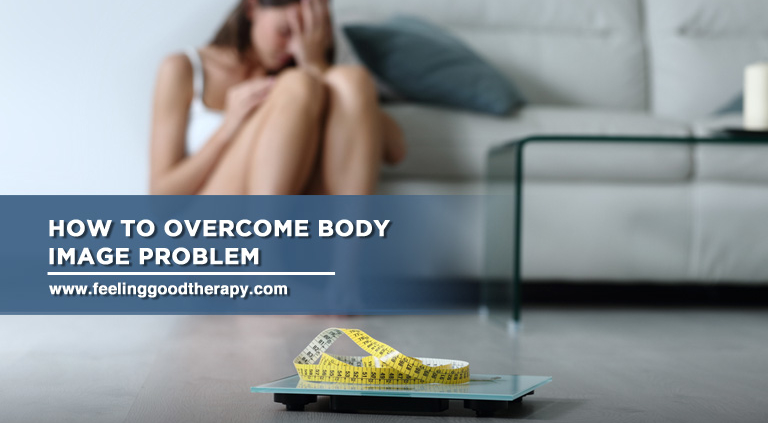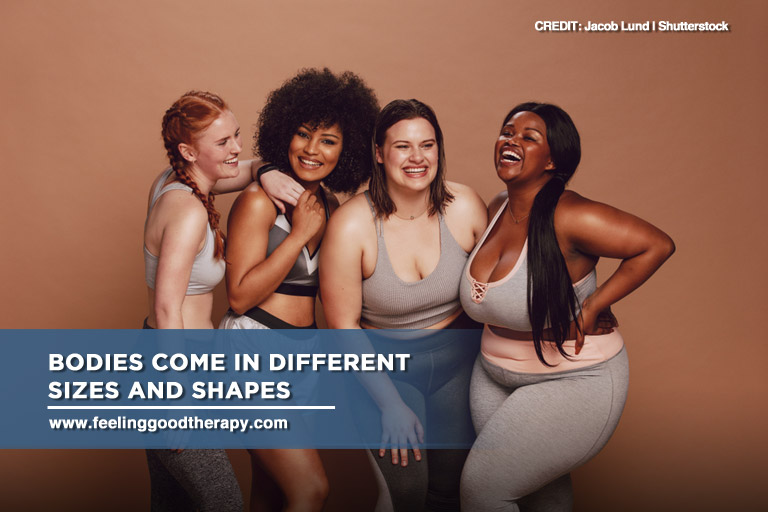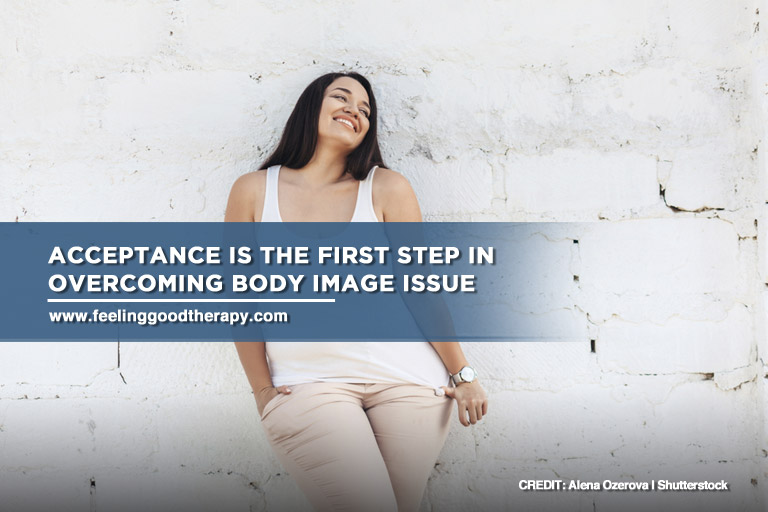How to Overcome Body Image Problem
Today, people live in a society where their bodies define who they are. Size and weight have become definitive factors of body image. When a person is unhappy with their size and weight, it makes it difficult for them to be satisfied with themselves. This problem causes men and women alike to take a step further and associate negative body image with self-image. Today’s society has forced people to believe that the only way to boost their self-image and feel better about themselves is to lose weight and become thinner, much like those extremely skinny models seen on television and in magazines.
Any damaging thought about your body image can have a direct impact on your self-esteem. Poor body image does not only affect how you perceive and carry yourself but also puts you at risk for serious mental health issues, such as body dysmorphic disorder (BDD) and eating disorders.
Understanding the cause is a crucial part of overcoming body image issues and learning to view yourself in a healthy and positive way.
- Rewrite Your Body Narrative
Your body narrative refers to how you see your body from a young age. The first step to overcoming issues with your body image is to reflect on how your body narrative started. This process can help you unravel thoughts and beliefs that are not healthy for your mental health. Take time to ask yourself:
-
- At what age did you start having concerns about your body?
- How did those stories impact your life at the time?
Once you recognize how these patterns are created in your mind, you can start to undo them.
- Fight “Fatism”
Accepting that bodies come in different sizes and shapes is another important step in appreciating your own body. You can even make a list of people you admire who do not have “perfect” bodies. How does their appearance affect how you feel about them? It is important to understand that the society’s body standards have significantly changed over the decades. Full-bodied women, like Marilyn Monroe and Mae West, were once considered the “ideal beauties” in the 1940s and 1950s. However, as the years passed, their body type came to be considered “overweight” by today’s standard.
- Stop Comparing Yourself
Comparing your physical attributes to those of other people often results in despair and loss of self-esteem. Many people, especially women, find it challenging to stop comparing themselves with others. This negative habit is automatic and can happen several times a day. When you compare yourself with others, what do you usually say to yourself? Is it fair? Is it realistic? How does it impact you?
- Practice Intuitive Eating
Intuitive eating means viewing food from an unbiased place. When you view food as either healthy or unhealthy, it can make you feel guilty, straining your relationship with food. However, when you practice intuitive eating, it integrates emotion, instinct, and rational thoughts into your choices of food. Reminding yourself that you deserve to enjoy food helps you to easily adapt to a more neutral perspective on food choices.
- Accept Genetics
There are certain aspects of your body that you cannot change no matter what you do. Genetics plays a significant role in your body size and shape. Medical experts said that at least 25% to 70% of your body is determined by your genes. Although it is impossible to change your genes, there are things you can do to alter or modify your beliefs and attitudes that will influence the way you feel about yourself.
When dealing with unhealthy body image, change should start with you. Also, it should start with self-respect and a positive attitude. You should also pay attention to your health and not your size. That is why it is important to stop comparing your body with that of your family members and friends, as well as media images. Keep in mind that no two bodies are the same. Your body is unique. It is impossible to be truly happy with yourself if you “diet into” a new body.
- Set Healthy Boundaries
You can choose not to participate in a discussion with someone who is complaining about their body or food. However, if you feel comfortable about the topic of weight loss and diet, you can remind them that such discussion can bring up emotional discomfort. Gently letting them know that you prefer not to talk about these issues because of your personal struggles can be rewarding.
- Befriend Your Body
Fighting negative body image helps prevent depression, low self-esteem, social anxiety, and self-consciousness. Stop judging your body and start to appreciate your inner being. The body of every man and woman is a biological masterpiece. Remember that you are a unique human being and that you do not have to compare yourself to others, especially those women in the media. Instead, follow women on social media that promote body image positivity. No matter what images you see on the Internet, make sure you realize your worth and that you do not need to depend on how closely you fit into these unrealistic standards.
- Seek Out Support
Wherever you are in North America, talking with a trusted online therapist in Los Angeles, San Francisco, or Toronto can help you identify the underlying feelings related to body image and heal your relationship with food rather than going through a rigid diet plan.
Accepting and loving your body always starts with you. Body image and self-esteem often go hand-in-hand. Any unrealistic pursuit of changing your body can often damage your mental and emotional health. If you know a loved one who struggles with negative body image, please seek professional mental health services in Toronto, Los Angeles or San Francisco to help stop the cycle of body hatred.
Dr. Katie Dashtban is here to help you redefine your body image and make you feel better about yourself. Give her a call at (831) 621-1150 or (888) 539-1172 to schedule a free consultation.






Leave a Reply
Want to join the discussion?Feel free to contribute!